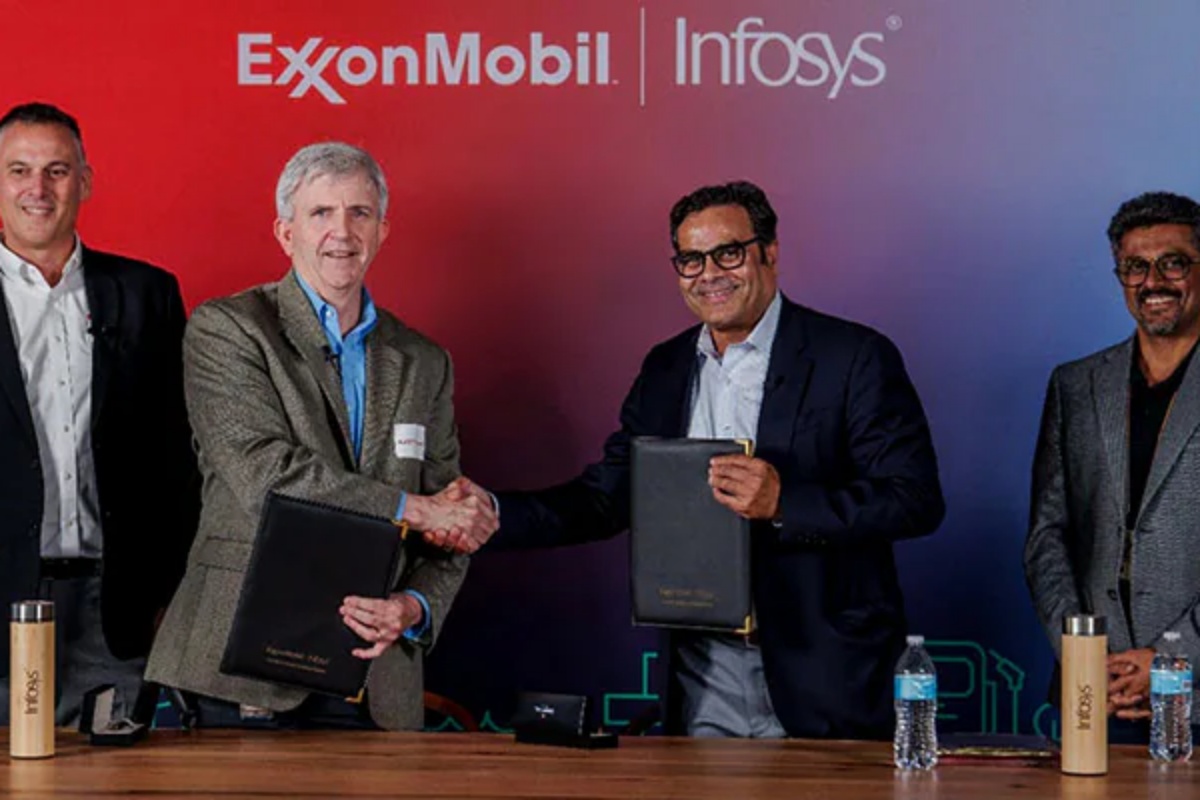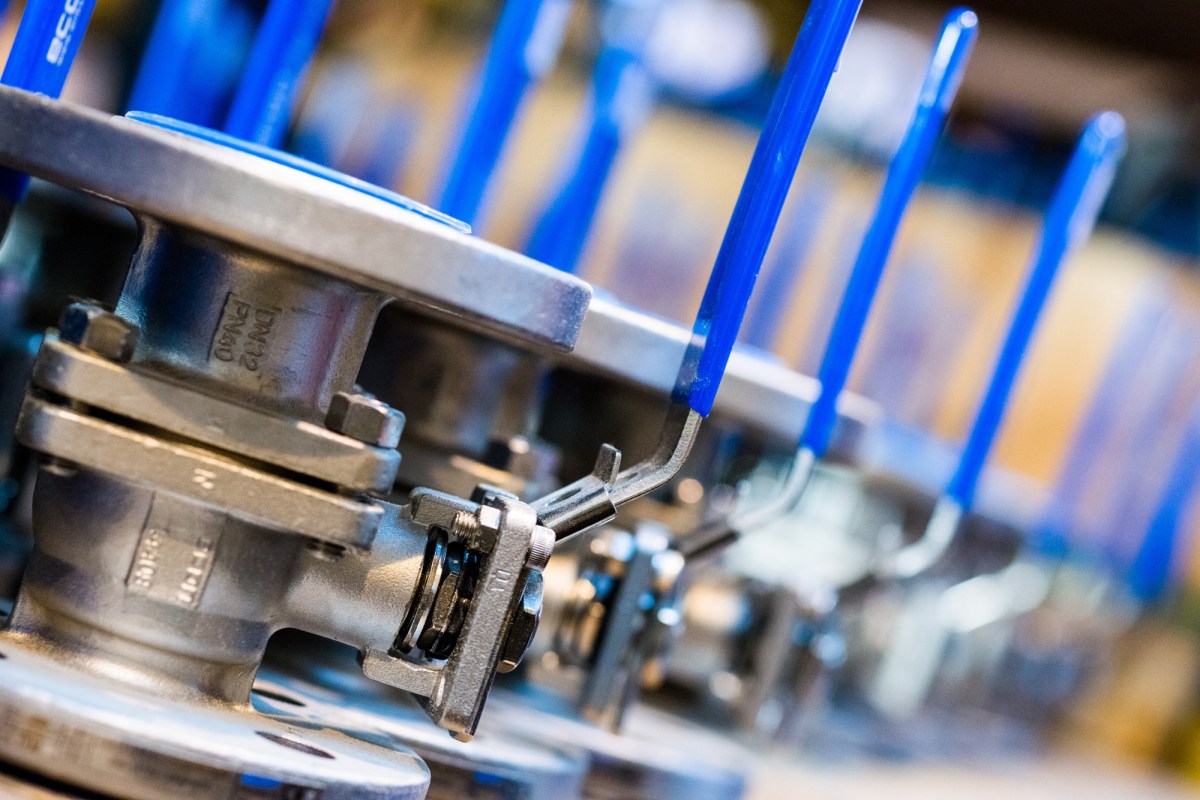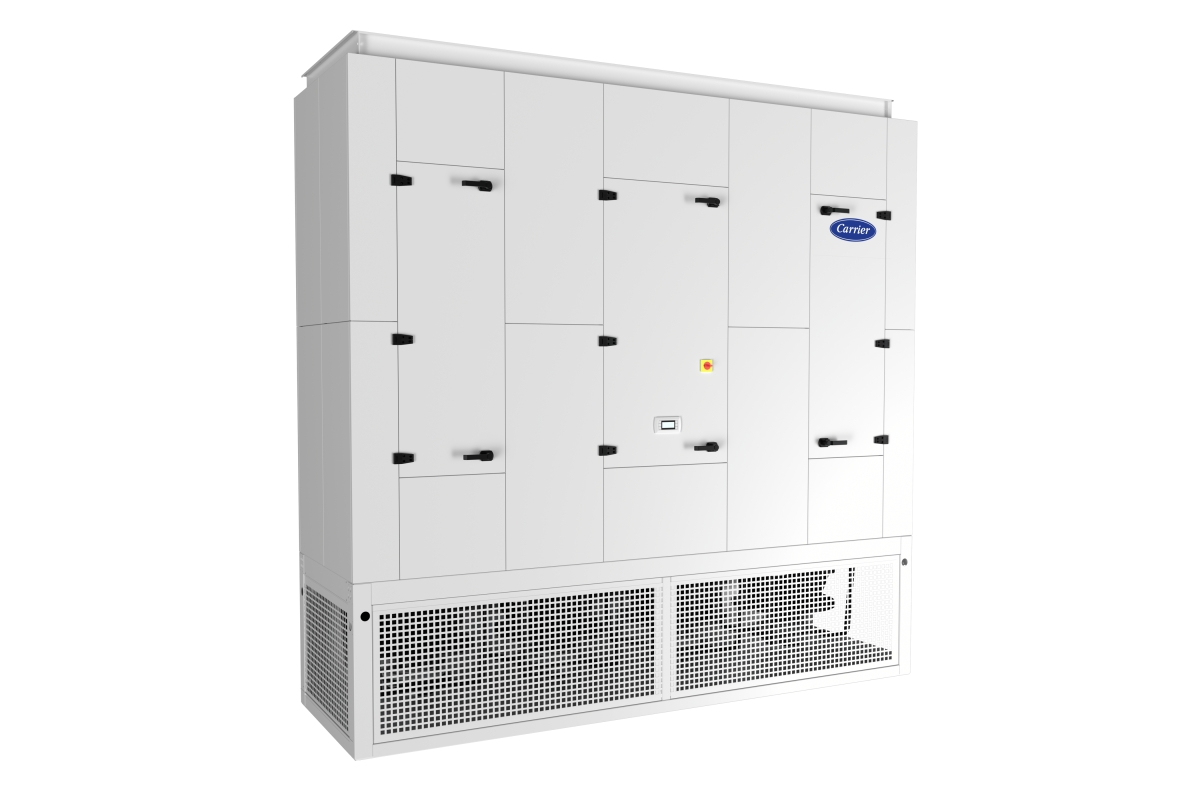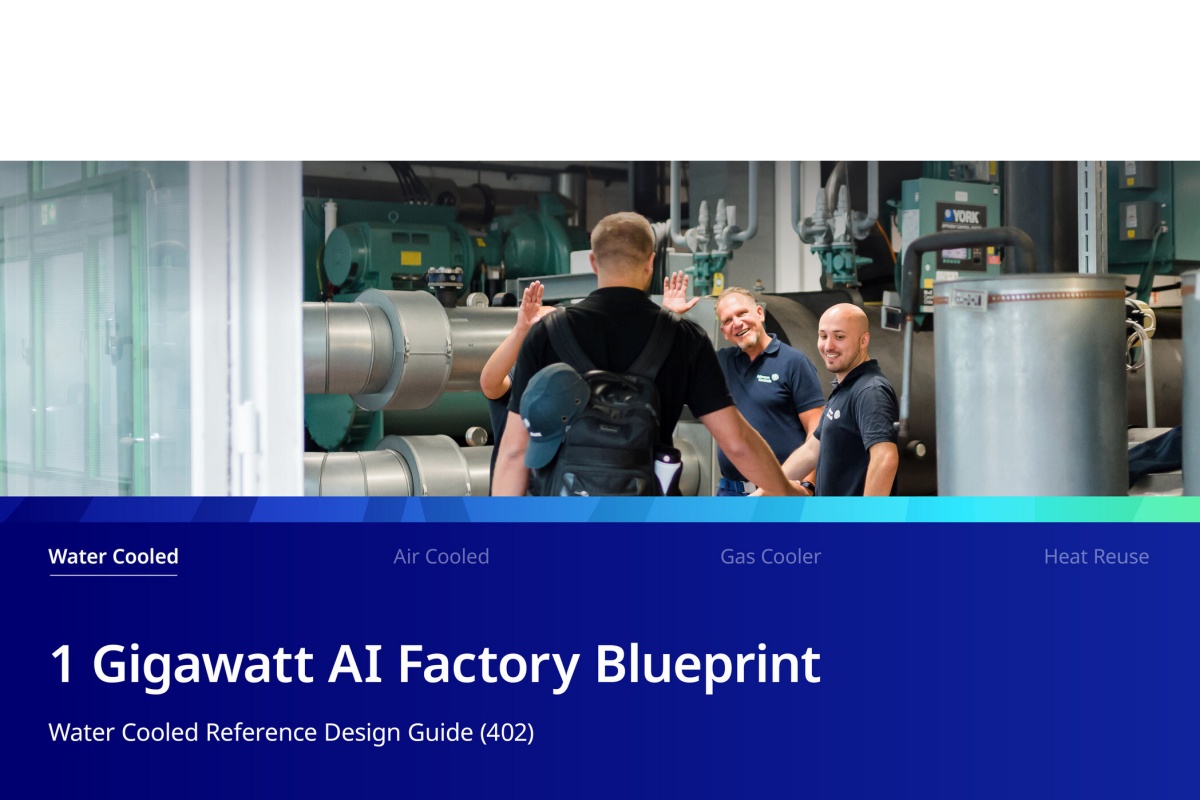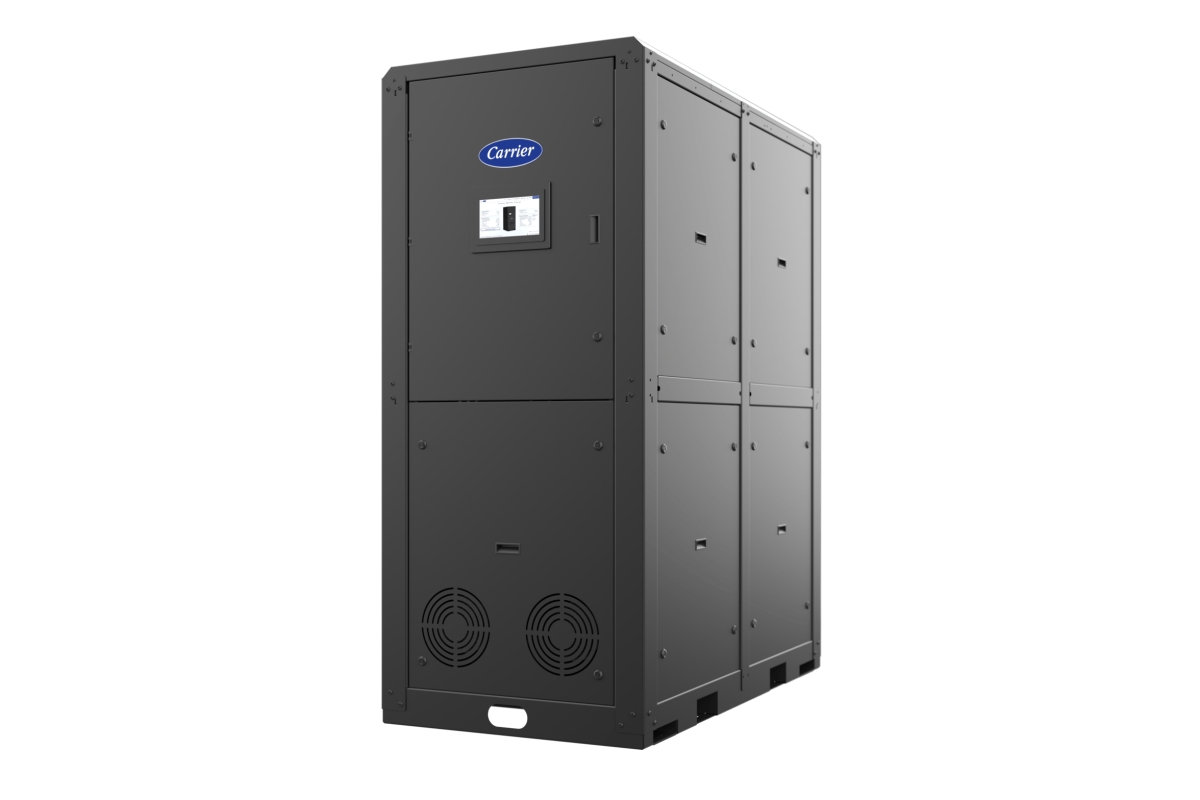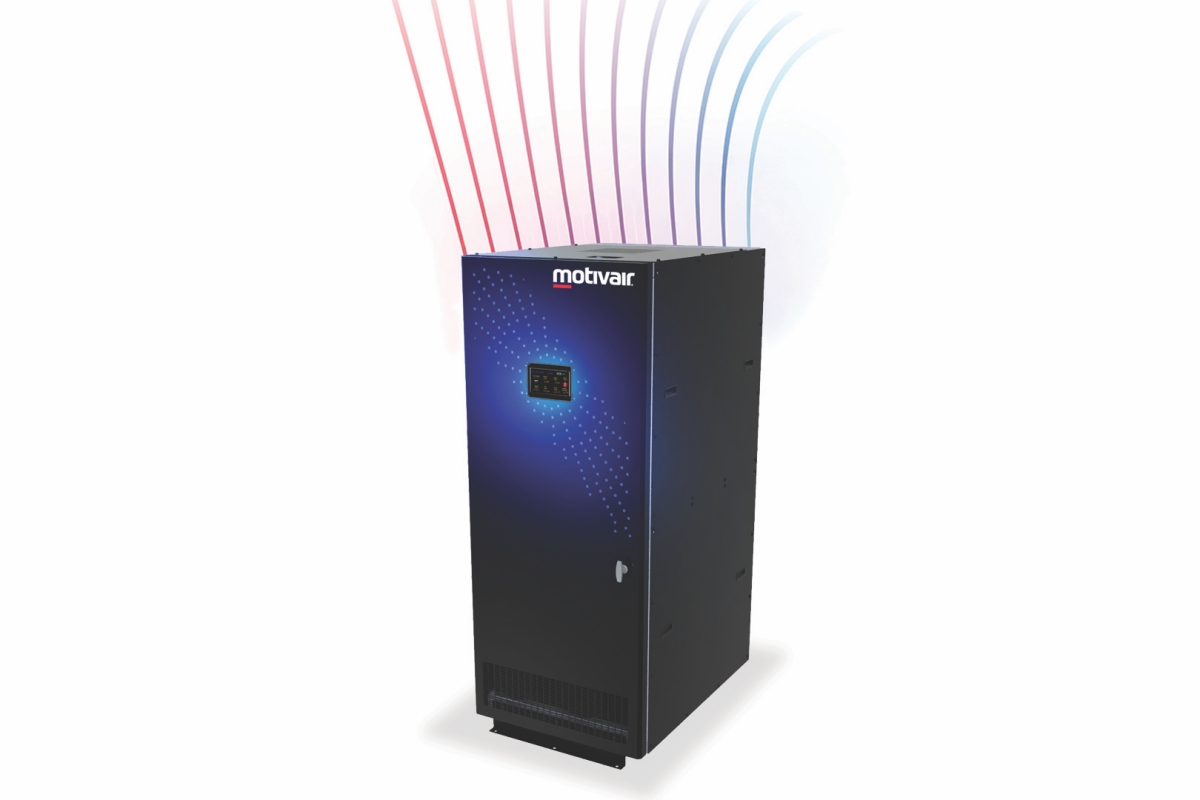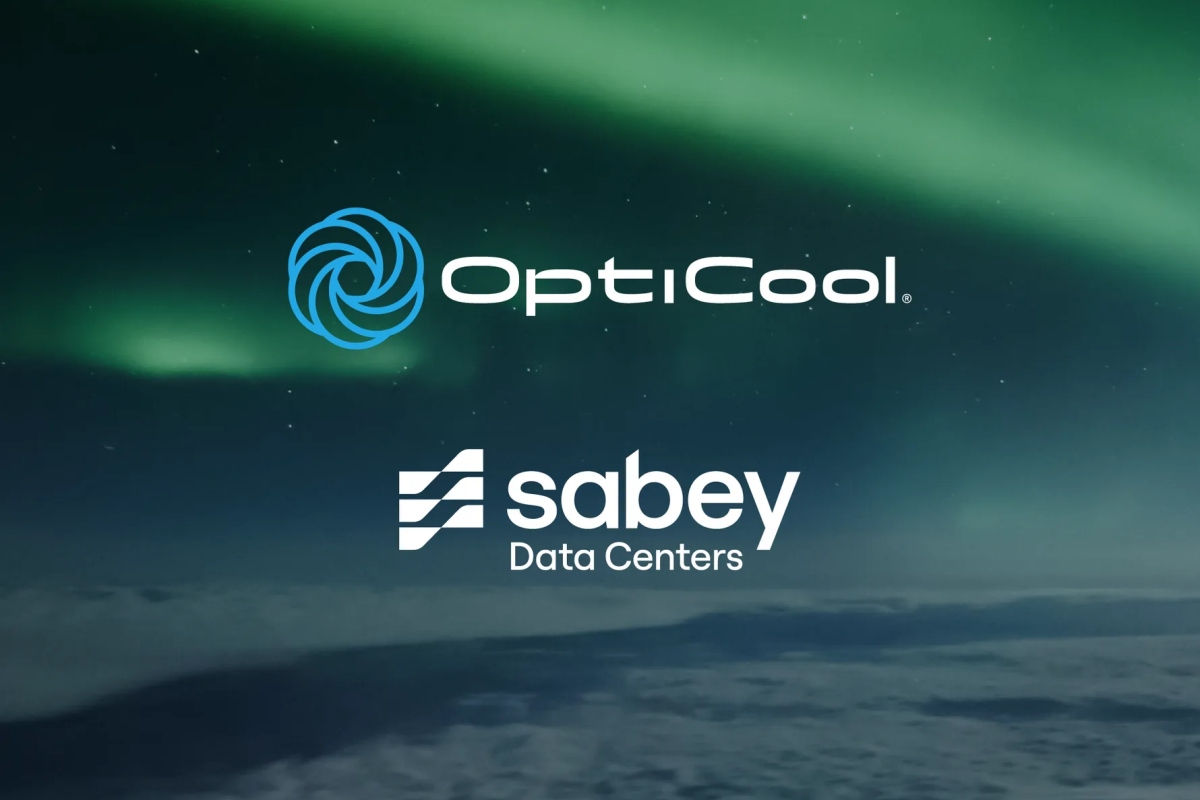Liquid Cooling Technologies Driving Data Centre Efficiency
Data Centre Infrastructure News & Trends
Innovations in Data Center Power and Cooling Solutions
Liquid Cooling Technologies Driving Data Centre Efficiency
Infosys, ExxonMobil collaborate on immersion cooling
Infosys, an Indian multinational provider of IT services, has expanded its collaboration with ExxonMobil, a US multinational oil and gas company, to develop and deploy ExxonMobil data centre immersion fluids for AI and high-performance computing environments.
The initiative focuses on improving energy efficiency and supporting higher-density compute infrastructure. It builds on the companies’ existing relationship and targets the growing power and cooling requirements associated with AI workloads.
Infosys will combine ExxonMobil’s immersion cooling fluids with its Topaz AI portfolio and Cobalt cloud services framework. The aim is to support the design and deployment of cooling systems across cloud and data centre environments.
AI-driven optimisation and cloud integration
According to Infosys, Topaz will be used to optimise cooling operations through real-time monitoring and predictive maintenance. Cobalt will provide cloud integration and deployment support for enterprise environments.
The collaboration is expected to target hyperscalers, enterprises, and public sector organisations across sectors including financial services, telecoms, manufacturing, and energy.
Ashiss Kumar Dash, EVP & Global Head - Services, Utilities, Resources, Energy and Enterprise Sustainability at Infosys, says, “Our expanded collaboration with ExxonMobil marks a pivotal step in scaling next-generation solutions.
"By leveraging Infosys Topaz for real-time AI-driven optimisation and Infosys Cobalt for secure, scalable cloud deployment with ExxonMobil’s advanced energy expertise, we are addressing the urgent need for more efficient high-performance digital infrastructure.
"This collaboration has the potential to deliver measurable outcomes by reducing data centre energy costs and carbon emissions while empowering enterprises to scale responsibly and meet the demands of an AI-powered future.”
Alistair Westwood, Global Marketing Manager, ExxonMobil Product Solutions Company, adds, “This collaboration reflects our commitment to innovation by allowing us to apply our energy and thermal management expertise to the evolving landscape of digital infrastructure.
"Infosys’ suite of AI and digital services is enabling us to pilot and adopt infrastructure that is smarter, efficient, and more resilient.”
Joe Peck - 13 February 2026
Data Centre Infrastructure News & Trends
Events
Innovations in Data Center Power and Cooling Solutions
Liquid Cooling Technologies Driving Data Centre Efficiency
Sponsored
ERIKS to showcase valves expertise at Data Centre World 2026
ERIKS UK & I, which has recently become a Rubix company, is exhibiting on Stand F6 at Data Centre World in London (4–5 March 2026), highlighting its experience in supporting designers and contractors working on increasingly complex cooling infrastructure. The company will showcase its valve expertise in data centre cooling applications, as AI-driven workloads place increasing demands on chilled water systems.
The rapid adoption of AI workloads is reshaping data centre design, with higher rack densities and new cooling architectures placing greater strain on mechanical systems. Chilled water networks are now required to operate at higher flow rates, deliver tighter control, and perform reliably in more demanding operating conditions, increasing the importance of valve selection, consistency, and long-term performance.
ERIKS supports data centre HVAC and chilled water applications with a broad portfolio of valve technologies covering the core functions commonly specified in cooling systems, including isolation, regulation, and protection. The offering spans a wide range of sizes, materials and actuation options, enabling engineers to standardise valve selection while accommodating differences in system design, environmental exposure, and future expansion plans.
Meeting changing data centre design
Jonny Herbert, Business Development Manager for Data Centres at ERIKS UK & I, says, “AI is accelerating the pace of change in data centre design, particularly on the cooling side.
"While valves are often treated as commodity components, their role in controlling and protecting chilled water systems is critical. Our approach is shaped by years of experience in the data centre sector, prioritising robustness, material choice, and practical design.”
ERIKS says it encourages earlier engagement on valve selection during the design and specification stages of data centre projects. Factors such as water quality, environmental exposure, coating requirements, and access for operation and maintenance can all influence long-term system reliability. Addressing these considerations upfront can help reduce the risk of premature failure, rework, or delays during installation.
Jonny continues, “As data centre projects become larger, more complex, and more tightly integrated with digital infrastructure, Data Centre World has become an important meeting point for the engineers, consultants, and contractors shaping the next generation of facilities. Our presence reflects both the maturity of our involvement in the sector and the growing need for practical, experience-led support as cooling requirements continue to evolve.”
Visit ERIKS UK & I on stand F6 at Data Centre World London (4–5 March 2026) to discuss valve requirements for data centre cooling and chilled water applications. Learn more, by visiting the company's website.
Joe Peck - 12 February 2026
Data Centre Business News and Industry Trends
Data Centre Infrastructure News & Trends
Innovations in Data Center Power and Cooling Solutions
Insights into Data Centre Investment & Market Growth
Liquid Cooling Technologies Driving Data Centre Efficiency
Trane to acquire LiquidStack
Trane Technologies, a US manufacturer of heating, ventilation, and air conditioning (HVAC) systems, has entered into a definitive agreement to acquire LiquidStack, a US-based provider of liquid cooling technology for data centres.
LiquidStack, headquartered in Carrollton, Texas, develops direct-to-chip and immersion cooling systems for high-density and hyperscale computing environments. The company’s technology is used to support generative AI and other compute-intensive workloads.
Trane Technologies made a minority investment in LiquidStack in 2023. The proposed acquisition expands its data centre thermal management portfolio, which includes chillers, heat rejection systems, controls, liquid distribution, and on-chip cooling.
Expanding liquid cooling capabilities
The deal includes LiquidStack’s manufacturing, engineering, and research and development operations in Texas and Hong Kong. Following completion, the business will operate within the Commercial HVAC unit of Trane Technologies’ Americas segment.
Holly Paeper, President, Commercial HVAC Americas, Trane Technologies, says, “Rising chip-level power and heat densities, combined with increasingly variable workloads, are redefining thermal management requirements inside modern data centres.
"Customers need integrated cooling solutions that scale from the central plant to the chip and can adapt as performance demands continue to evolve.
"LiquidStack’s direct-to-chip and immersion cooling capabilities and talent, combined with Trane’s systems expertise and global footprint, strengthen our ability to deliver end-to-end, future-ready thermal management across the entire data centre ecosystem.”
LiquidStack co-founder and CEO Joe Capes will join Trane Technologies in a leadership role and will continue to lead the business.
Joe says, “LiquidStack has been on a mission to innovate and deliver the most advanced, powerful, and sustainable liquid cooling solutions.
"Joining Trane Technologies enables us to accelerate that mission with the resources, scale, and global reach needed to power next-generation AI workloads in the most demanding compute environments."
The transaction is expected to close in early 2026, subject to customary conditions. Financial terms have not been disclosed.
Trane Technologies also recently announced the acquisition of Stellar Energy, which is expected to complete in the first quarter of 2026.
For more from Trane Technologies, click here.
Joe Peck - 11 February 2026
Data Centre Business News and Industry Trends
Data Centre Infrastructure News & Trends
Innovations in Data Center Power and Cooling Solutions
Insights into Data Centre Investment & Market Growth
Liquid Cooling Technologies Driving Data Centre Efficiency
Direct-to-chip liquid cooling market to reach $7.9bn by 2033
Rising computational intensity has placed unprecedented pressure on traditional air-based cooling systems. High-performance computing (HPC), artificial intelligence (AI), cloud data centres, and advanced semiconductor architectures generate dense heat loads that are increasingly difficult to manage using conventional thermal management approaches.
According to Research Intelo, a global market research and consulting firm, the global direct-to-chip liquid cooling market was valued at $1.3 billion (£951 million) in 2024 and is projected to reach $7.9 billion (£5.7 billion) by 2033, expanding at a CAGR of 22.3%. This strong growth trajectory underscores the growing reliance on liquid-based cooling technologies to support next-generation digital infrastructure.
Direct-to-chip liquid cooling has emerged as a practical and scalable response to these challenges, offering targeted heat removal directly from processors and other high-power components. By reducing thermal resistance and improving heat transfer efficiency, this approach supports higher rack densities while aligning with broader energy efficiency and sustainability objectives.
What exactly is direct-to-chip liquid cooling?
Direct-to-chip liquid cooling is a thermal management method in which a liquid coolant flows through cold plates mounted directly onto heat-generating components such as CPUs, GPUs, and accelerators. Heat is absorbed at the source and transported away through a closed-loop liquid system, minimising reliance on air circulation.
Compared to immersion cooling, which involves submerging entire systems in dielectric fluids, direct-to-chip solutions integrate more easily with existing data centre architectures. This balance between high cooling efficiency and operational compatibility has positioned the technology as a preferred option for gradual infrastructure upgrades and hybrid cooling deployments.
Which factors are driving market growth?
1. Technological innovation and automation
As processing power and server densities continue to rise, traditional air-cooling solutions are approaching their practical limits, increasing the risk of thermal throttling and hardware degradation. Direct-to-chip liquid cooling technologies provide a highly efficient alternative by enabling precise and consistent heat removal from critical components.
Ongoing innovation in cold plate design, advanced coolants, and system integration is further enhancing performance and reliability. The incorporation of smart sensors, real-time monitoring tools, and automated flow controls enables predictive maintenance and dynamic thermal optimisation. These advancements are making direct-to-chip liquid cooling more scalable and accessible across a wide range of computing environments, from hyperscale data centres to edge deployments.
2. Shifts in end-user accelerating market expansion
The rapid expansion of data-intensive applications, including AI, machine learning, blockchain, and the Internet of Things (IoT), has led to unprecedented heat generation within servers and computing clusters. Enterprises and data centre operators face increasing pressure to maintain high performance and uptime while controlling operational costs and energy consumption.
Direct-to-chip liquid cooling addresses these demands by delivering superior thermal efficiency and reducing dependence on energy-intensive air conditioning systems. The ability to support higher rack densities is particularly valuable in urban data centres and edge locations where space and power constraints are significant. As organisations prioritise sustainability and long-term infrastructure resilience, adoption of liquid cooling technologies is expected to expand across multiple industry verticals.
3. Regulatory support and government incentives
Regulatory frameworks aimed at reducing energy consumption and greenhouse gas emissions in data centres are creating favourable conditions for advanced cooling technologies. In regions such as Europe and North America, government incentives - including tax benefits, grants, and energy efficiency programs - are encouraging the adoption of low-impact thermal management solutions.
In parallel, international standards for green data centre operations are pushing organisations to modernise their infrastructure and improve environmental performance. These regulatory and policy-driven factors are fostering innovation, reducing adoption barriers, and supporting sustained market growth.
What challenges are limiting wider adoption?
Despite strong growth prospects, the market faces several challenges that could impact adoption rates. Regulatory uncertainty related to safety standards, environmental compliance, and fluid handling requirements can complicate deployment decisions. Volatility in raw material prices, particularly for copper and specialised cooling fluids, may also influence production costs and pricing strategies.
Additionally, standardisation gaps and interoperability issues can pose challenges in complex or legacy IT environments. Addressing these constraints will require continued collaboration among technology providers, regulators, and end-users to establish clear guidelines, improve compatibility, and build confidence in long-term system reliability.
Which technologies are shaping product innovation?
Manufacturers are continually refining cold plate designs to improve heat transfer efficiency and compatibility with next-generation processors. Innovations such as microchannel architectures, optimised flow paths, and advanced alloys enable higher thermal performance while minimising pressure drop and energy consumption.
Customisation tailored to specific processor architectures and workload requirements has become increasingly common. This flexibility supports diverse applications across AI, HPC, cloud computing, and enterprise data centres, further strengthening the market’s value proposition.
What regional trends are emerging?
• North America dominates the global market, accounting for over 38% of total market share in 2024. This leadership is driven by a mature data centre ecosystem, advanced IT infrastructure, and early adoption of innovative cooling technologies. The strong presence of hyperscale data centre operators and cloud service providers, particularly in the US, has accelerated deployment across the region.
• Asia Pacific is projected to register the fastest growth, with a CAGR of 27.1% from 2025 to 2033. Rapid digital transformation, expanding cloud infrastructure, and increasing investments in hyperscale and edge data centres are fuelling demand. Countries such as China, India, Japan, and Singapore are witnessing rising adoption of AI and HPC across sectors including fintech, healthcare, and smart cities, further driving the need for advanced cooling solutions.
• Latin America, the Middle East, and Africa are experiencing gradual adoption of direct-to-chip liquid cooling technologies. While infrastructural limitations, budget constraints, and skills gaps have slowed deployment, growing awareness of long-term cost savings and sustainability benefits is steadily improving market outlook in these regions.
What does the competitive landscape look like?
The market features a combination of established thermal management companies and specialised liquid cooling solution providers. Competition is primarily based on cooling efficiency, system reliability, ease of integration, and total cost of ownership.
Strategic partnerships between hardware manufacturers, data centre operators, and cooling technology providers are becoming increasingly common. Continuous investment in research and development remains critical, as cooling requirements evolve alongside processor design and workload intensity.
What is the future outlook for the direct-to-chip liquid cooling market?
The transition towards high-density computing shows no signs of slowing. Market forecasts indicate strong expansion, with the direct-to-chip liquid cooling market expected to grow from $1.3 billion (£951 million) in 2024 to $7.9 billion (£5.7 billion) by 2033, reflecting sustained demand across data centre, enterprise, and research environments.
As processors become more powerful and energy efficiency expectations rise, direct-to-chip liquid cooling is expected to shift from selective adoption to broader implementation. Continued standardisation, declining component costs, and increased operational familiarity are likely to accelerate this transition.
Conclusion: Is direct-to-chip liquid cooling becoming a standard rather than an option?
Direct-to-chip liquid cooling addresses some of the most critical challenges facing modern computing infrastructure. By enabling efficient heat management, supporting high-performance workloads, and aligning with sustainability and energy efficiency goals, the technology is redefining thermal management strategies.
As digital workloads intensify and infrastructure demands evolve, the market’s trajectory raises a defining question: Will direct-to-chip liquid cooling soon be regarded as a baseline requirement for advanced computing environments rather than a specialised enhancement?
Joe Peck - 10 February 2026
Data Centre Infrastructure News & Trends
Innovations in Data Center Power and Cooling Solutions
Liquid Cooling Technologies Driving Data Centre Efficiency
Products
Carrier launches CRAH for data centres
Carrier, a manufacturer of HVAC, refrigeration, and fire and security equipment, has introduced the AiroVision 39CV Computer Room Air Handler (CRAH), expanding its QuantumLeap portfolio with a precision cooling system designed for medium- to large-scale data centre environments.
Developed and manufactured in Europe, the AiroVision 39CV is intended to support energy efficiency, reliability, and shorter lead times, while meeting EU regulatory requirements.
The unit offers a cooling capacity from 20kW to 250kW and is designed to operate with elevated chilled water temperatures.
Carrier states that this approach can improve energy performance and contribute to lower power usage effectiveness (PUE) by enabling more efficient chiller operation and supporting free cooling strategies.
Factory-integrated design for simplified deployment
The AiroVision 39CV features a built-in controller for real-time monitoring, adaptive operation, and integration with building management systems. The control platform can be configured to suit specific operational requirements.
All components are factory-integrated to reduce on-site installation and commissioning work. Additional features, including an auto transfer switch and ultra-capacitors, are intended to support service continuity in critical environments.
Michel Grabon, EMEA Marketing and Market Verticals Director at Carrier, says, “The 39CV is a strategic addition to our QuantumLeap Solutions portfolio, designed to help data centre operators address today’s most pressing challenges: increasing thermal loads from higher computing densities, the need to reduce energy consumption to meet sustainability targets, and the pressure to deploy solutions quickly and efficiently.
"With its high-efficiency design, intelligent control system, and factory-integrated components, the 39CV helps operators to improve energy performance, optimise installation time, and build scalable infrastructures with confidence.”
For more from Carrier, click here.
Joe Peck - 9 February 2026
Data Centre Infrastructure News & Trends
Innovations in Data Center Power and Cooling Solutions
Liquid Cooling Technologies Driving Data Centre Efficiency
Products
PFX highlights its SOLUTHERM cooling fluids
PFX Group, a Canadian manufacturer of automotive and industrial fluids, has showcased its SOLUTHERM heat transfer fluid range at the 2026 AHR Expo in Las Vegas, USA.
The company presented its thermal management fluids at the Recochem booth during the event, which ran from 2 to 4 February. The SOLUTHERM range is designed to support HVAC system performance, including traditional heating and cooling loops and liquid cooling applications in data centres.
The company states that increasing power densities, changing regulatory requirements, and evolving system materials are driving greater demand for effective thermal management. This is particularly relevant in data centres, where continuous operation and high-performance computing environments require reliable temperature control to support equipment performance and operational continuity.
The SOLUTHERM range includes glycol-based heat transfer fluids designed to support system efficiency, temperature stability, and corrosion protection. Some formulations are developed to support environmental targets, including biodegradable options and fluids aligned with LEED building requirements.
Jerome Dujoux, Vice President of Branding and Innovation at PFX Group, says, “HVAC and data centre cooling are no longer separate conversations.
"As computing power increases and buildings become more energy intensive, thermal management is becoming a connective tissue between digital infrastructure and the built environment. That’s the shift SOLUTHERM is designed for.”
Thermal fluids for HVAC and data centre cooling
Among the products highlighted at the exhibition were SOLUTHERM PG HD and EG HD heat transfer fluids, designed for HVAC applications in facilities including hospitals, universities, and other critical infrastructure environments.
The company also presented SOLUTHERM direct liquid cooling fluids, developed for servers and high-performance computing environments. These fluids are designed to operate across a wide temperature range, supporting data centre cooling requirements associated with increasing power density.
Additional products included SOLUTHERM PG HD LEED heat transfer fluids, which use bio-based propylene glycol and meet ASTM D8039 corrosion testing standards, and SOLUTHERM PG AL Safe heat transfer fluids, developed for systems containing aluminium components such as boilers, water heaters, and heat exchangers.
Tom Corrigan, Director of Research and Development at PFX Group, notes, “Heat transfer fluids are often treated as a commodity when, in reality, they influence energy efficiency, equipment lifespan, and system reliability more than most people realise.
"We see thermal management as a strategic decision and that’s why SOLUTHERM is engineered for specific applications and backed with ongoing support.”
Joe Peck - 5 February 2026
Data Centre Build News & Insights
Data Centre Infrastructure News & Trends
Exploring Modern Data Centre Design
Innovations in Data Center Power and Cooling Solutions
Liquid Cooling Technologies Driving Data Centre Efficiency
Johnson Controls launches cooling reference design guides
Johnson Controls, a global provider of smart building technologies, has announced the launch of its Reference Design Guide Series for one-gigawatt AI data centres.
Each guide in the series maps the full thermal chain, offering cooling architectures tailored to diverse compute densities, geographies, and elevations.
The series begins with a blueprint for water-cooled chiller plants, with future guides to address air-cooled and absorption chiller solutions.
As AI transforms industries, the scale and complexity of data centre infrastructure is rapidly evolving. The ability to efficiently manage thermal loads at gigawatt scale is now a critical enabler for AI innovation, and the industry faces mounting pressure to deliver facilities that are not only high-performing, but also sustainable and future-ready.
Johnson Controls says its Reference Design Guide Series responds to this challenge by outlining how to achieve "industry-leading" energy and water efficiency (PUE and WUE) while maintaining flexibility to scale across diverse climates and operational requirements.
The guide outlines a complete thermal architecture supporting both liquid- and air-cooled IT loads through integrated computer room air handlers (CRAHs), fan coil walls, coolant distribution units (CDUs), and high-efficiency YORK centrifugal chillers.
It provides sizing guidance for 220MW compute quadrants and defines temperature and operating conditions across all major facility loops, including Technology Cooling System (TCS) loops supporting next-generation GPUs.
Stated key outcomes
• Zero water consumption — A "fully water-free" heat rejection process using dry coolers, "reducing operational costs and advancing sustainability objectives."
• Future-ready thermal flexibility — High-temperature TCS loop readiness aims to ensure compatibility with forthcoming GPU architectures.
• Optimised high-density AI performance — Alignment with NVIDIA DSX reference architecture enables scalable deployment of 1-GW-class AI Factories.
• Energy-efficient operation — Elevated condenser water temperatures, bifurcated loops, and YORK high-lift chillers aim to deliver good PUE and improved annualised efficiency.
Austin Domenici, Vice President & General Manager at Johnson Controls Global Data Center Solutions, says, "AI Factories are production facilities - the places where intelligence is manufactured at an industrial scale.
"By supporting the NVIDIA DSX reference architecture and improving water and energy efficiency in the cooling process while maintaining high temperature loop compatibility, our Reference Design Guide equips customers to deploy gigawatt-scale AI infrastructure that is scalable, repeatable, resilient, and sustainable."
For more from Johnson Controls, click here.
Joe Peck - 3 February 2026
Data Centre Infrastructure News & Trends
Innovations in Data Center Power and Cooling Solutions
Liquid Cooling Technologies Driving Data Centre Efficiency
Products
Carrier launches CDU with 2°C ATD
Carrier, a manufacturer of HVAC, refrigeration, and fire and security equipment, has introduced a new coolant distribution unit (CDU), designed to support the growing use of liquid cooling in UK data centres while improving energy performance, resilience, and space utilisation.
The Carrier CDU is intended to help operators manage higher rack densities and increasing cooling demands. It is designed to support liquid-cooled IT environments and provide greater control over energy use and system uptime.
As liquid cooling becomes more widely adopted to meet efficiency targets, the CDU enables deployment at scale through management of secondary coolant loops. Carrier says this can help reduce pumping energy and optimise heat removal across varying load conditions.
Thermal performance and system efficiency
The CDU uses modular heat exchangers that can deliver approach temperatures as low as 2°C, compared with more typical 4°C systems. According to Carrier, this can enable up to 15% chiller energy savings, allowing more electrical capacity to be allocated to IT loads rather than cooling.
Oliver Sanders, Data Centre Commercial Director UK&I, Carrier HVAC, notes, “Data centre leaders across the UK are focused on increasing capacity without increasing risk.
“This new Carrier CDU supports that goal by giving operators greater thermal stability, more flexibility in system design, and better visibility of cooling performance. The result is improved energy efficiency and smoother scalability as liquid cooling demand grows.”
The CDU is designed for use in mission-critical environments and includes redundant pumps and power supplies to support continued operation during maintenance or unexpected events.
Intelligent controls manage fluid temperatures and flow rates in real time, with the aim of maintaining stable conditions for high-density servers while reducing energy consumption.
Integration, scalability, and monitoring
Carrier states that the CDU is designed for simplified integration into existing facilities, allowing liquid cooling to be introduced with minimal disruption.
The product range includes multiple unit sizes from 1.3 to 5 MW, enabling operators to align cooling capacity with current and future high-density requirements.
The system is intended to support direct-to-chip cooling as well as mixed cooling environments. Carrier says it is designed to maintain stable performance under fluctuating workloads and higher ambient temperatures.
“Liquid cooling adoption is accelerating, and operators want systems that deliver both efficiency and certainty,” Oliver continues. “With this Carrier CDU, customers can integrate high-density workloads confidently, knowing their cooling system is designed to maximise uptime, efficiency, and long-term value.”
The CDU integrates with Carrier’s control platforms to support centralised monitoring, performance optimisation, and energy management. This is intended to help data centre teams track cooling trends, respond to load changes, and plan capacity more effectively.
The Carrier CDU forms part of Carrier’s QuantumLeap portfolio of data centre technologies.
For more from Carrier, click here.
Joe Peck - 26 January 2026
Data Centre Infrastructure News & Trends
Innovations in Data Center Power and Cooling Solutions
Liquid Cooling Technologies Driving Data Centre Efficiency
Products
Motivair introduces scalable CDU for AI data centres
Motivair, a provider of liquid cooling systems for data centres, owned by Schneider Electric, has announced a new coolant distribution unit designed to support high-density data centre cooling requirements, including large-scale AI and high-performance computing deployments.
The new CDU, MCDU-70, has a nominal capacity of 2.5 MW and is intended for use in liquid-cooled environments where compute density continues to increase.
Motivair says the system can be deployed as part of a centralised cooling architecture and scaled beyond 10 MW through multiple units operating together.
According to the company, the CDU is designed to support current and future GPU-based workloads, where heat output is significantly higher than traditional CPU-based infrastructure.
It notes that rack power densities in AI environments are expected to approach one megawatt and above, increasing the need for liquid cooling approaches.
Designed for scalable, high-density cooling
Motivair states that the new CDU integrates with Schneider Electric’s EcoStruxure platform, allowing multiple units to operate as part of a coordinated system. The design is intended to support phased expansion as cooling demand grows, without requiring major redesign of the wider plant.
Rich Whitmore, CEO of Motivair by Schneider Electric, comments, “Our solutions are designed to keep pace with chip and silicon evolution. Data centre success now depends on delivering scalable, reliable infrastructure that aligns with next-generation AI factory deployments.”
The CDU forms part of Schneider Electric’s wider liquid cooling portfolio, which includes systems ranging from lower-capacity deployments through to multi-megawatt installations.
Motivair says the units are designed as modular building blocks, enabling operators to select and combine systems based on specific performance and redundancy requirements.
The system is manufactured through Schneider Electric's facilities in North America, Europe, and Asia, and is intended to provide high flow rates and pressure within a compact footprint.
The company adds that the design supports parallel filtration, real-time monitoring, and integration with other cooling components to support efficient operation across the data centre.
The MCDU-70 is now available to order globally.
For more from Schneider Electric, click here.
Joe Peck - 21 January 2026
Data Centre Infrastructure News & Trends
Innovations in Data Center Power and Cooling Solutions
Liquid Cooling Technologies Driving Data Centre Efficiency
Sabey Data Centers partners with OptiCool Technologies
Sabey Data Centers, a data centre developer, owner, and operator, has announced a partnership with OptiCool Technologies, a US manufacturer of refrigerant-based cooling systems for data centres, to support higher-density computing requirements across its US facilities.
The collaboration sits within Sabey’s integrated cooling programme, which aims to ease adoption of liquid cooling approaches as processing demand increases, particularly for AI applications.
Sabey says the partnership will broaden the range of cooling technologies available to customers across its portfolio, providing a practical route to denser deployments.
OptiCool supplies two-phase refrigerant pumped systems designed for data centre use. The non-conductive refrigerant absorbs heat at the rack through phase change, removing heat without chilled water, large mechanical infrastructure, or significant data hall changes.
Sabey states that the method can support increased density while reducing energy use and simplifying plant design.
Supporting higher-density and liquid cooling uptake
John Sasser, Chief Technical Officer at Sabey Data Centers, comments, “Partnering with OptiCool allows us to offer a cooling pathway that is both efficient and flexible.
"Together, we’re making it easier for customers to deploy advanced liquid cooling while maintaining the operational clarity and reliability they expect.”
Lawrence Lee, Chief Channel Officer at OptiCool, adds, “By working with Sabey, we’re able to bring our two-phase refrigerant systems into facilities designed to support the next generation of compute.
"This partnership helps customers move forward with confidence as they transition to more advanced cooling architectures.”
For more from Sabey Data Centers, click here.
Joe Peck - 19 January 2026

Head office & Accounts:
Suite 14, 6-8 Revenge Road, Lordswood
Kent ME5 8UD
T: +44 (0)1634 673163
F: +44 (0)1634 673173
